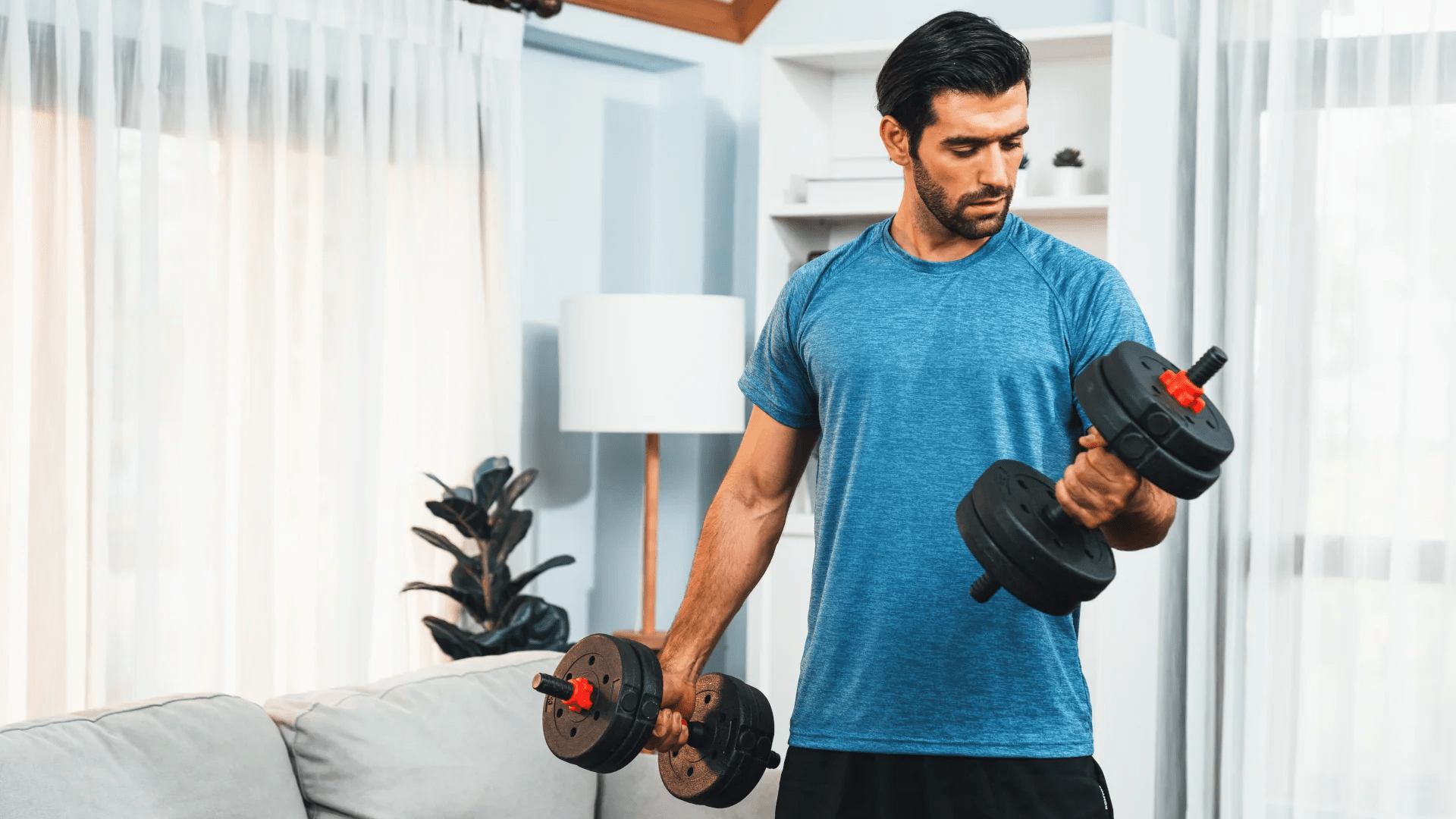Grab your cheat sheet |
When you are desperately trying to build muscle mass, you will no doubt be willing to pursue every available avenue to find additional performance, strength and, of course, gains.
This drives many men who want to get in shape toward the perceived magic of testosterone and how it can aid muscle growth.
This is a perfectly logical conclusion because testosterone can significantly affect the amount of muscle you pack on, the extent of your energy levels, focus, drive and mental sharpness.
You will need all these attributes and more if you want to reach your peak physical potential, which is why trying to increase the total amount of testosterone flowing around your system is a wise idea.
However, we live in what many health experts call a testosterone epidemic, whereby the average testosterone level in a man is falling and drastically so.
Gen-Zs and Millennial males have far lower testosterone levels than their forebears, with each proceeding generation from the Seventies onwards experiencing a significant drop in testosterone compared to their fathers.
There are many potential reasons for this shocking decline which we will explore later on in this article.
Given that low testosterone can lead to a lack of muscle growth, sexual dysfunction, a lack of mood regulation and a lack of focus, among many other problems, it is crucial to ensure you work to increase your testosterone levels.
For now, we are asking the simple question - how can you naturally increase your testosterone levels?
Well, working out is certainly a logical place to start. Given that having a sedentary lifestyle can lead to low testosterone, it stands to reason that working out hard can spike those levels back up.
Is this just bro science, or does working out increase testosterone?
Why are healthy testosterone levels important?
Testosterone, a hormone predominantly associated with masculinity, is vital in various physiological functions.
It is often referred to as the male hormone, or sex hormone - because of its close link to perceived traits of masculinity - and has a huge effect on the proper functioning of your body.
While testosterone also serves useful functions for women (it is just not produced in the same quantity), here we concern ourselves, particularly with how testosterone production is triggered in men.
Well, naturally, it is the testicles that create the majority of your testosterone, which in turn is responsible for a wide variety of functions - including growing muscle mass, growing facial and pubic hair, as well as the deepening of your voice as you go through puberty.
Other benefits of healthy testosterone production include even fat distribution, superior bone density, and a higher sex drive. More significantly for the gym goers among you, testosterone has a massive effect on your metabolism by increasing the production of red blood cells and promoting muscle growth. 
The additional red blood cells result in superior oxygen-carrying capacity, leading to improved energy production during exercise. What’s more, testosterone can influence the neurotransmitters in your brain - including dopamine - which helps to spark motivation and energy.
Strong testosterone levels can therefore contribute to high levels of motivation, focus, and drive, all crucial for exercise.
As you can see, many of these attributes have a positive impact on your overall fitness and can hugely influence whether you will be able to hit your health goals in the future.
So, does working out increase testosterone?
Alright, so we’ve told you exactly why testosterone is so vital for maintaining a healthy mind and body, but the question you really want to be answered is whether exercise can spike higher T levels in both the short and long term.
Well, the quick answer is yes, working out can increase your testosterone levels over time.
This is fantastic news because it means you hold the keys to your own testosterone levels and can help spark higher levels within yourself.
Moreover, once you start exercising to develop higher levels of testosterone, you will find that the additional testosterone will make it easier to pile on muscle mass, work out harder and for longer, and find it easier to focus on your workout.
This creates a self-fulfilling cycle of improvement, which can completely transform your physique.
However, it is worth pointing out that not all exercise is conducive to higher T levels. This is crucial to know because you might be wasting your time on physical activity which is doing nothing for your testosterone levels.
So, let’s move on and find out which types of exercise are most conducive to increasing your testosterone levels.
Resistance Training and Testosterone
If you want to skyrocket your levels of testosterone, then resistance training is where it is at.
Resistance training, which involves different types of weightlifting and strength exercises, has been found to significantly increase your T levels over time, according to health experts.
Several research study results suggest that resistance training can massively increase testosterone production.
Of course, your personal results will depend upon the volume of reps you complete per set, the amount of weight you can lift, as well as the length of your rest intervals. The good news is that if you are already weight training, then you are likely to be hitting the requirements for increased T-level production already.

As long as you are progressively overloading on a consistent basis, and continually increasing the overall challenge of your workouts, then you are going to spike your testosterone.
The reason why progressive overload affects your testosterone production is multifaceted.
Firstly, progressive overload sparks muscle hypertrophy (which is essentially muscle growth in plain English) by putting your muscles through progressively greater resistance or intensity.
As your muscle mass grows over time, it can lead in turn to higher testosterone levels. This is because testosterone plays a major role in muscle protein synthesis, which is how new muscle is created.
Secondly, progressive overload in resistance training can boost your metabolism and increase your overall energy expenditure. This can have a wildly positive influence on your body’s hormone regulation, including, of course, testosterone production. Naturally, there are certain exercises that are more conducive to raising T levels than others.
For instance, the deadlift is famously the daddy of all testosterone spikes and is an essential element of any workout plan if you want to both raise your T levels and increase your overall muscle mass and bodily strength.
Squats, bench presses and overhead presses are also key lifts for men wanting to boost their levels of testosterone.
Of course, there are still variations within weight training when it comes to assessing an increase of testosterone levels.
As you might expect, the longer and harder you train, the more testosterone will be produced. If you train with a higher level of intensity while also completing multiple sets, you are going to see a much greater t level generation than if you only lift relatively light weights for a shorter period of time.
In terms of how long this testosterone spike lasts, you are looking at around an hour of elevated t levels. However, bear in mind that your testosterone will fluctuate naturally throughout the day, so your overall levels will likely be raised as a result.
Cardio and Testosterone
In stark contrast to resistance training, the impact of cardio on testosterone is less impressive.
While studies demonstrate a transient increase in testosterone levels post-cardio, the magnitude of change is relatively small. In fact, some experts even claim that certain types of cardio actually reduce the amount of testosterone you can produce, although we wouldn’t recommend stopping cardio completely because of this.
After all, if you are fitter from a cardiovascular standpoint, then you are likely to lift heavier weights for longer in the gym, which will, in turn, raise your testosterone levels.
Furthermore, the type of cardio you complete and the intensity with which you attack your session will largely determine how much testosterone is coursing around your body.
For instance, high-intensity interval training (HIIT) routines have been found to increase your t levels substantially, but the effect of this is far less than the equivalent strength exercise, and its effects quickly wear off.
Other Factors Influencing Testosterone Levels
Beyond exercise, there are several lifestyle factors that can significantly influence your testosterone levels. This is worth keeping in mind if you are obsessed with working out to boost your testosterone levels.
Your work in the gym will all be for nothing if you aren’t considering these other factors closely. For instance, your nutrition, sleep, stress management, and age all contribute to hormonal regulation.
You will need to consume enough calories every day to ensure you maintain healthy levels of testosterone, but make sure that your diet is balanced and healthy.
After all, obesity is one of the most overriding factors when it comes to depleted t levels, so you shouldn’t be stuffing yourself with fast food and chocolate bars to make up for the caloric deficit.
Moreover, it is essential for you to make sure that you are getting sufficient sleep every night, as the quality of your sleep has a huge effect on both your testosterone and overall mood regulation - as well as your muscle growth.
Therefore, if you are looking for higher testosterone levels in order to achieve your peak form as a man, you should be looking towards shut-eye as one of the chief areas to improve.
You should also make sure that your stress levels are kept under control. Negative stress has a horrible effect on the mind and body, so aim to build meditation and other mindful exercises into your daily routine.
Of course, you need to remember that your age will play a role in how high your testosterone levels are.
Your testosterone levels will naturally tail off as you pass the age of thirty (at the rate of 1% per year), so you need to be prepared for this change in your body.
Ultimately, leading a healthy lifestyle is key if you want to garner higher testosterone levels.
How to boost your testosterone levels further
If you want to boost your testosterone levels, then you will need to combine all the factors mentioned above if you want to reach a healthy level.
Is it to aid your muscle growth as you pursue the perfect physique? Or is it to maintain a higher state of focus throughout the day?
Whatever your reasons, these can all be supplemented by lifestyle modification-induced increases.
A dedicated weight-lifting gym routine, high-intensity interval training exercises, good sleep, a balanced diet and a stress-free lifestyle will get you to where you want to be.
You can also try our natural testosterone-boosting supplement at Testoprime, which gives you a considerable bump in t levels without any of the nasty steroidal side effects. It is ideal for those already leading a healthy lifestyle who want that extra boost in testosterone on a daily basis.
Does exercise increase testosterone levels?
In conclusion, the relationship between working out and testosterone levels is complex.
Exercise, particularly resistance training, can lead to a significant boost in testosterone production. Exercises such as the deadlift, squat and bench press are particular stand outs as testosterone-boosting movements because they hit multiple muscle groups, but as long as you are progressively overloading on each set, you are almost certain to notice a spike in t levels.
On the other hand, cardio has far less of an effect on your t levels and in some cases, might even cause them to drop off. However, this has not been quantifiably proven, and it is worth mentioning that obesity is a far higher threat to your t levels than cardio.
As a result, you are better off maintaining a well-rounded and healthy lifestyle than worrying about which exercises are hurting your testosterone levels.
Moreover, it's vital to remember that exercise is just one piece of the testosterone-boosting puzzle. Nutrition, sleep, stress management, and age also have a huge influence on your testosterone levels - and supplements such as Testoprime can help you boost your testosterone to the next level.
By adopting a holistic approach to health and fitness, you can increase your testosterone levels naturally and reap the benefits for overall well-being.





